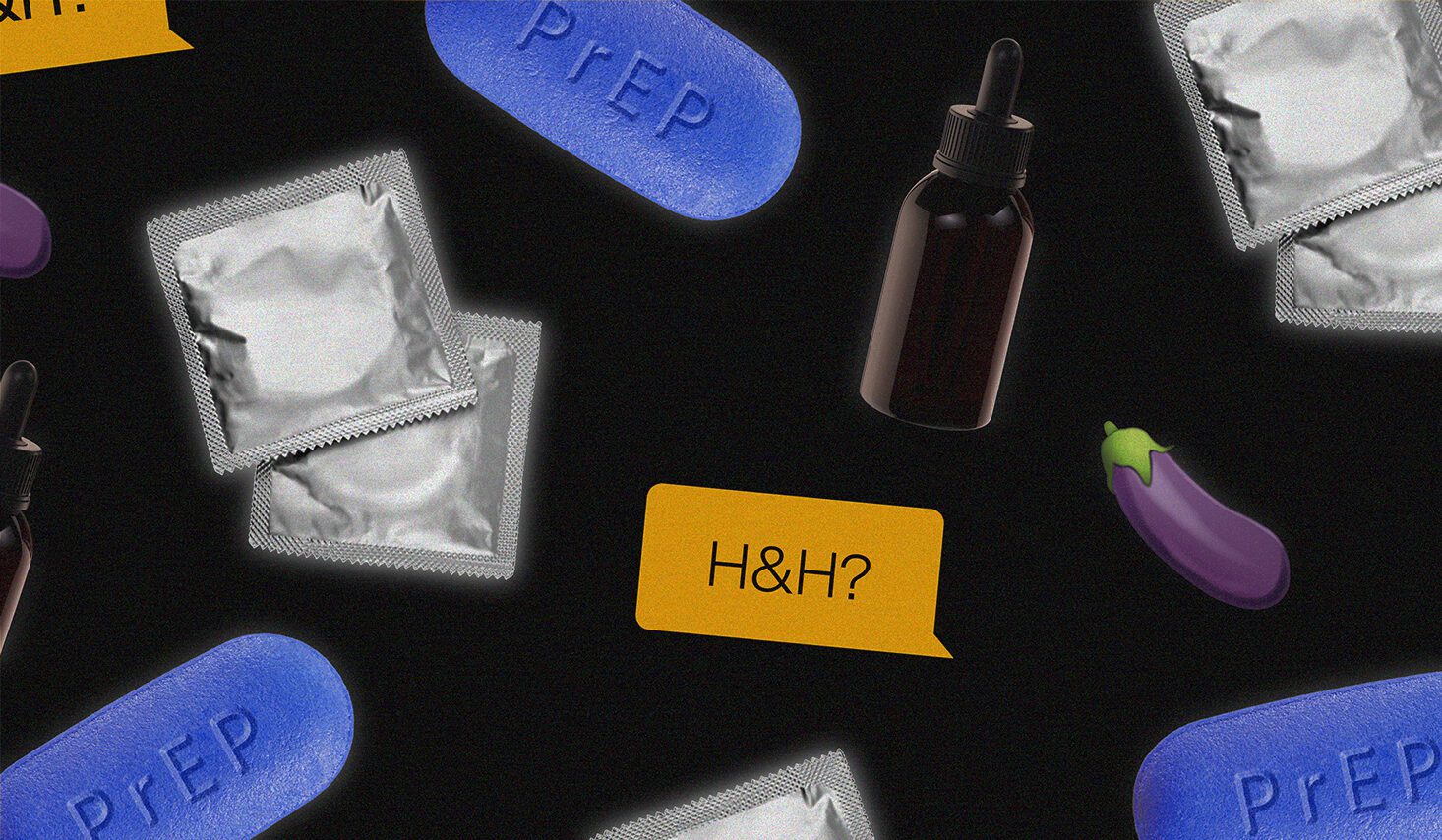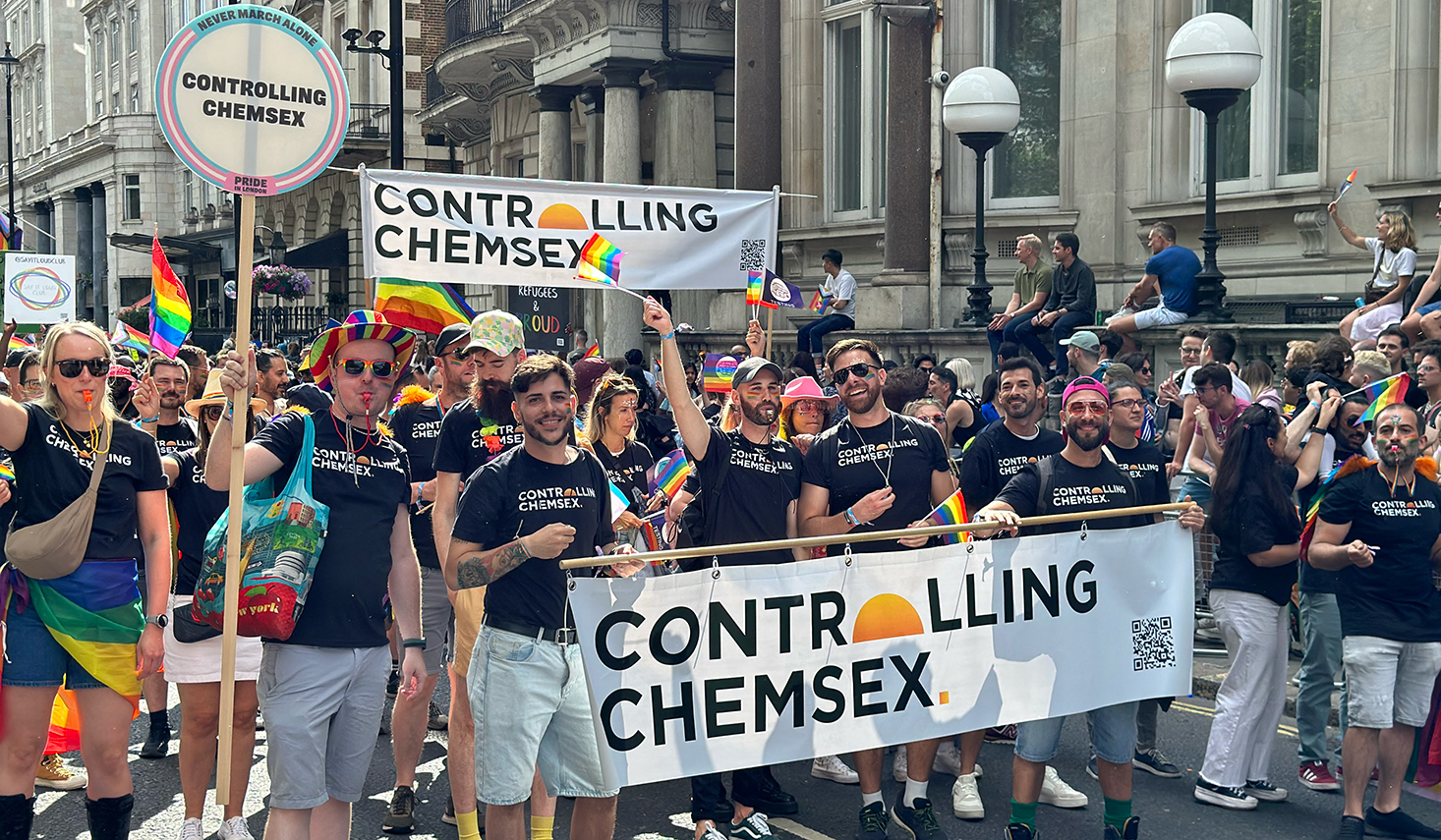
Chemsex is not a new phenomenon, nor is the stigma that surrounds talking about it. Those most in need of support are often unaware that any exists, or don’t seek it out due to fears of being shamed. As such, GAY TIMES collaborated with Controlling Chemsex, a charity created and run by professionals with experience providing chemsex support, to bring you the facts about it, make you aware of the risks and give you the details of how to stay safe and get support when necessary.
What is chemsex?
‘Chemsex’ is the term used to describe sexual activity while under the influence of drugs (also known as chems). There are a number of reasons as to why people engage in chemsex that include, but are not limited to, low self-esteem and desires to enhance a sexual experience. Chemsex can happen with one or multiple sexual partners and mostly takes place among men who have sex with men.
What drugs are most commonly associated with chemsex?
Chemsex is most simply defined as sexual activity while under the influence of drugs, which can include the likes of cocaine, ecstasy and ketamine. However, the three that are most commonly associated with it are:
- Crystal meth – a strong amphetamine stimulant that is psychologically addictive.
- Mephedrone – a powerful stimulant that is psychologically addictive.
- GHB/GBL (commonly known as ‘G’) – a corrosive, liquid depressant that is physically addictive.
These can lead to an enhanced sexual experience, though come with significant health risks and are incredibly addictive. They can also impair your ability to make decisions, lead to issues around consent and, in worst-case scenarios, result in overdose and death. Ignacio Labayen de Inza, the founder and CEO of Controlling Chemsex, told GAY TIMES that “crystal meth is the drug causing most problems” in London. “The data that we’ve collected indicates that 96 per cent who are seeking help because of issues relating to chems use are using crystal meth,” he continued. “GHB is also a big problem – GHB is linked to overdoses, sexual assaults and a physical dependency that can make withdrawal really difficult.”
What are the risks of chemsex?
The impact of taking part in chemsex varies from person to person, though it always comes with a number of risks:
- Physically, it can lead to accidents and injuries as a result of being under the influence of drugs, while long-term health problems can also develop. Drugs such as crystal meth and mephedrone are sometimes injected, meaning an increased risk of infections and blood borne viruses.
- Mentally, chemsex has been linked to higher levels of anxiety and depression, as well as psychotic episodes such as paranoia and/or hallucinations.
- Partaking in chemsex can also impact your sexual health, with high risk of HIV, hepatitis C and other STIs such as syphilis and gonorrhoea being transmitted. Chemsex users are also at risk of poor adherence to HIV medication, potentially jeopardising their undetectable status.
- Chemsex also has the potential to affect wider aspects of your life, such as work and personal finance.

How can I keep myself safe?
In order to be as safe as possible, there are a number of things you can do:
- Get regularly tested whether you engage in chemsex or not.
- Use condoms when having sex to lower the chances of anything spreading.
- Take PrEP/PEP to protect yourself against HIV.
- Never share needles with another person.
- Be aware of your own boundaries and create coping mechanisms to lean on if you are ever tempted to cross them.
How can I control my use of chems?
There are several things you can do to control your use of chems and avoid putting yourself in situations where engaging in chemsex is a possibility. These include:
- Know your triggers and set up coping mechanisms you can turn to when they appear. Remember, these could be people you’ve had good times with in the past, so having a simple “no thanks” reply saved in your drafts ready for when they reach out could be a simple way of keeping distance between you and the temptation of chems.
- Updating your bio on dating and hook-up apps to include things such as “No H&H” makes it clear you have no interest in chems. This will limit the amount of people partaking in chemsex who message you, ultimately helping you avoid temptation.
- Limit the amount of time you spend on hook-up apps, as well as implementing personal boundaries on when you use them. For example, we are often at our most vulnerable when feeling alone and/or isolated – so avoiding such apps when experiencing these feelings could be a good idea. Setting yourself a rule on not using them before or after certain times of day (and deciding on something else to do when you get the urge to go on them) will also help with this.
- Keep a clear head, particularly if you know you are going to be in a situation where chemsex is a possibility. One way of doing this is being aware of your alcohol intake and ensuring you keep within your own personal limit.
- If you think it could be useful to change your phone settings to block yourself from downloading certain apps, accessing certain websites or talking with certain people, you can find out how to do this by Googling ‘parental control’ functions on your device. In some cases, to prevent the cycle of deleting and redownloading apps, keeping them on your phone could help you avoid using them.
- Remember that nobody is perfect and slip-ups happen, so if you relapse don’t be too hard on yourself and reach out for support if you need it.
Is there any help available?
Yes, there is support available for those struggling with chemsex – though what is available can vary based on your location. “We get requests for training from health professionals around the world – particularly the United States, where they’re seeing high levels of chems use,” Ignacio explained. “In the US, for example, there’s not really any specialised chemsex support – they tend to take an addiction-based approach, offering harm reduction support, or encouraging people to try 12-step recovery programmes such as Crystal Meth Anonymous or Narcotics Anonymous. These recovery programmes only focus on drug use, ignoring the chemsex interdependency of sex and drugs. For many, the reason to use drugs is to experience the sexual rush – it’s not about the drugs in isolation.”
Below are links to places with resources available for those who may need them:
- Controlling Chemsex
- Galop
- LGBT Foundation
- London Friend
- Talk to Frank
- Terrence Higgins Trust
- 56 Dean Street
Free and confidential chemsex support is available to help you take back control – contact Controlling Chemsex for one-to-one advice and guidance.


